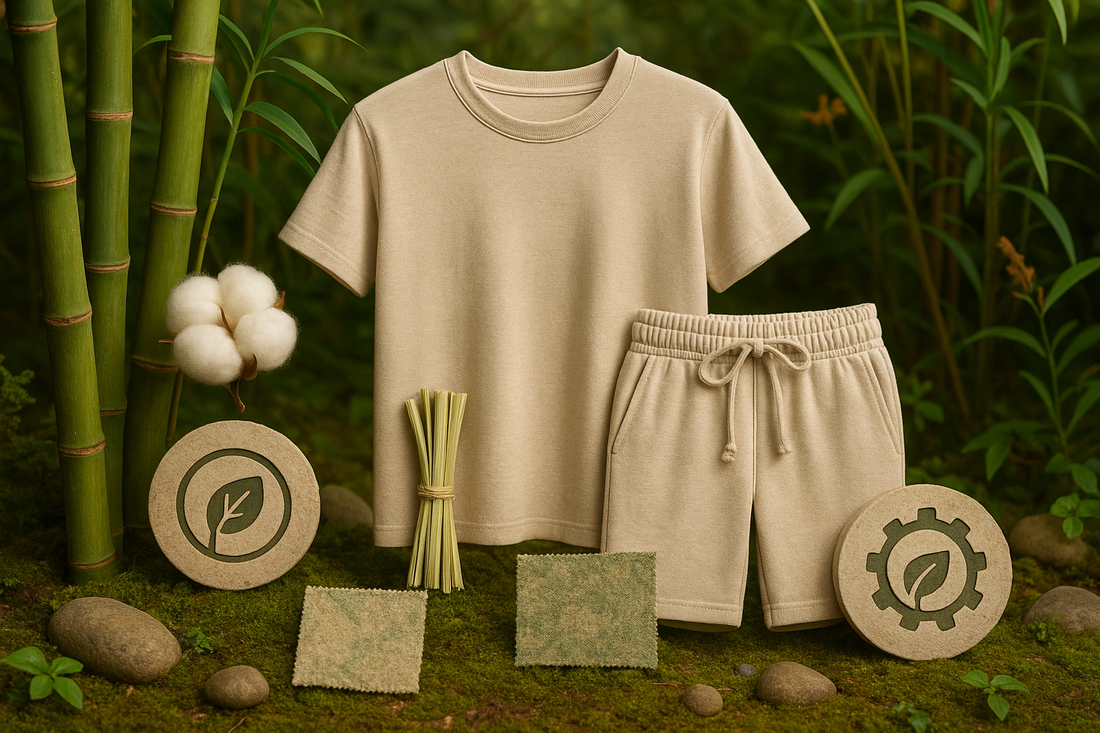
Sustainable Fashion: A Comprehensive Guide to Eco-Friendly Materials, Ethical Production, and Conscious Consumption
Sustainable fashion refers to clothing and accessories that are designed, produced, and consumed in an environmentally friendly and socially responsible manner. It's about making choices that reduce our negative impact on the planet while promoting fair labor practices. In this article, we'll delve into the key aspects of sustainable fashion and provide practical tips on how to build an eco-friendly loungewear wardrobe.
Eco-Friendly Materials
One of the cornerstones of sustainable fashion is the use of eco-friendly materials. These include:
- Organic cotton: Grown without pesticides or synthetic fertilizers
- Recycled materials: Converted from post-consumer waste
- Tencel: Made from sustainable wood pulp
- Bamboo: Highly renewable and requires minimal water
- Plant-based fabrics: Such as hemp and flax
These materials have a lower environmental impact compared to conventional materials like synthetic fibers and non-organic cotton.
Ethical Production
Ethical production ensures fair labor conditions, safe working environments, and fair compensation for workers. Look for certifications like Fair Trade and B Corp, which guarantee certain standards are met. Ethical production also means transparency throughout the supply chain, from sourcing to manufacturing.
Circular Fashion
Circular fashion is a system where clothing is designed to be recycled, reused, or biodegradable. This approach aims to eliminate waste and the constant demand for new resources. Strategies include clothing rental services, take-back programs, and designing garments that can easily be recycled or upcycled.
Environmental Impact
The fashion industry is one of the world's most polluting industries, with significant impacts including:
- Water pollution: From dyeing and treatment processes
- Greenhouse gas emissions: From production and transportation
- Waste generation: Fast fashion leads to rapid disposal of garments
- Resource depletion: Overuse of non-renewable resources
By choosing sustainable options, we can reduce these negative effects.
Sustainable Brands
Many brands are now committed to sustainable practices. When shopping, look for brands that:
- Use eco-friendly materials
- Have transparent supply chains
- Implement circular business models
- Offset their carbon emissions
Supporting these brands helps drive the industry towards more sustainable practices.
Conscious Consumption
Conscious consumption is about making informed choices that align with your values. This includes:
- Buying only what you need
- Investing in quality over quantity
- Caring for your garments to extend their life
- Supporting sustainable brands
- Avoiding fast fashion and trends
Every purchase has an impact, and conscious consumption helps reduce waste and demand for unsustainable products.
Building an Eco-Friendly Loungewear Wardrobe
Start your sustainable fashion journey with your loungewear wardrobe. Here are some tips:
- Invest in a few high-quality, eco-friendly pieces
- Choose materials that are comfortable and durable
- Consider second-hand or rental options
- Care for your garments properly to extend their life
- Support brands that align with your values
Remember, sustainable fashion is a journey. Every small change makes a difference, and starting with your loungewear is a comfortable and practical first step.
